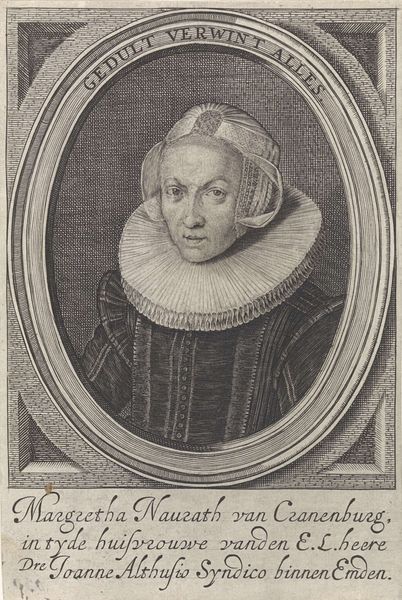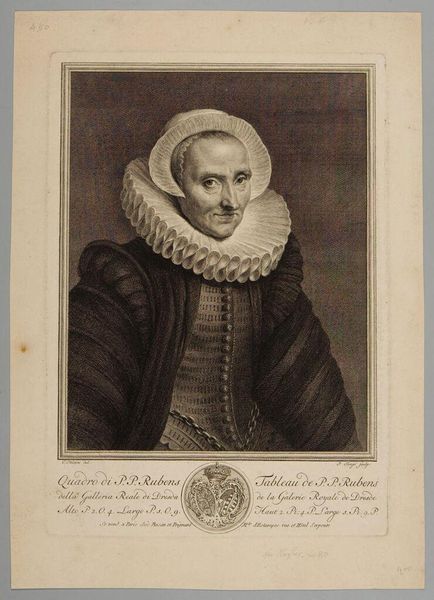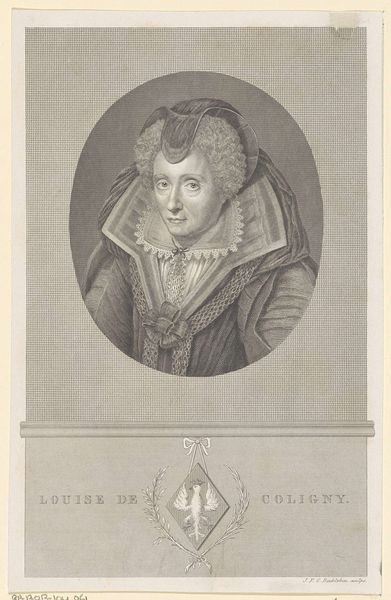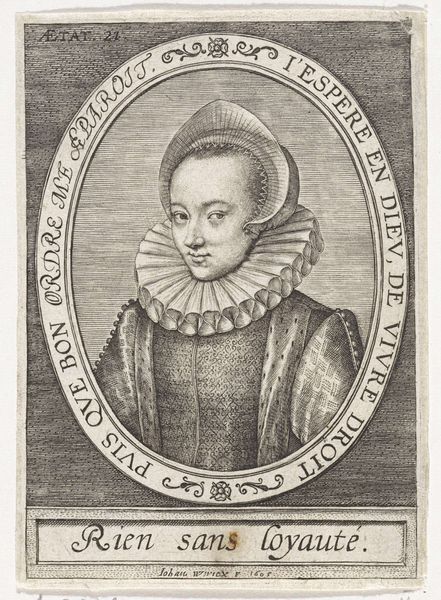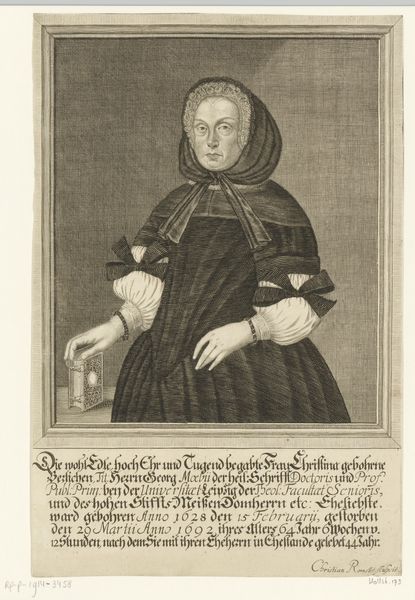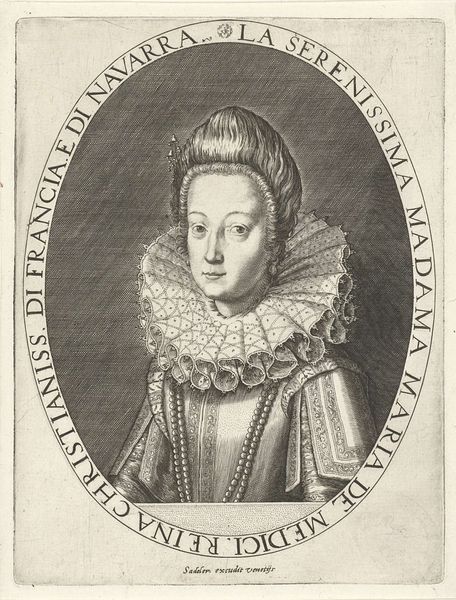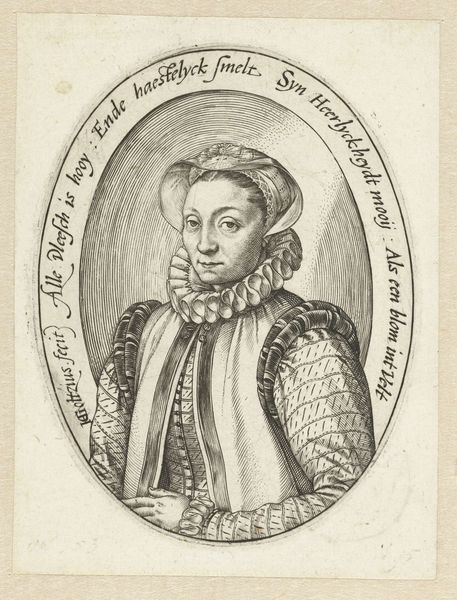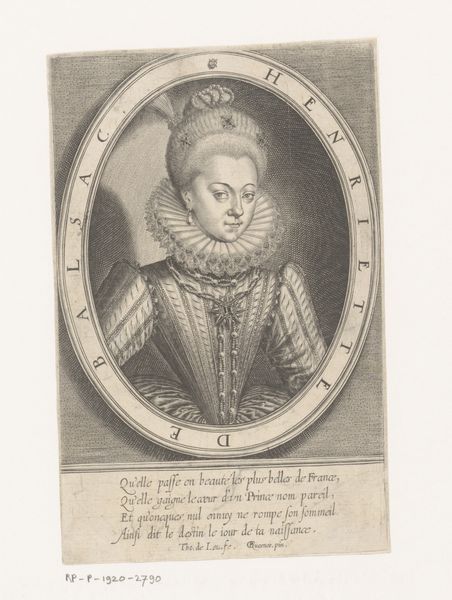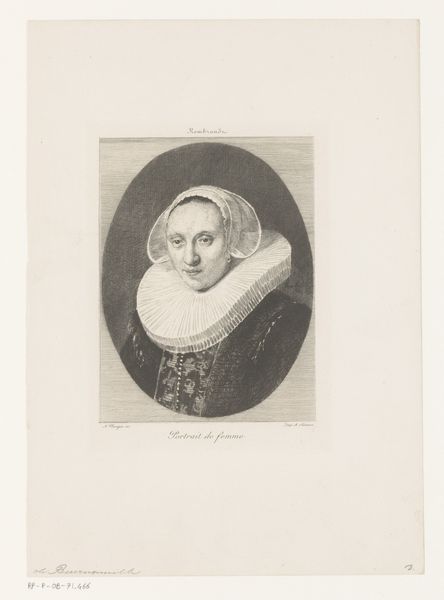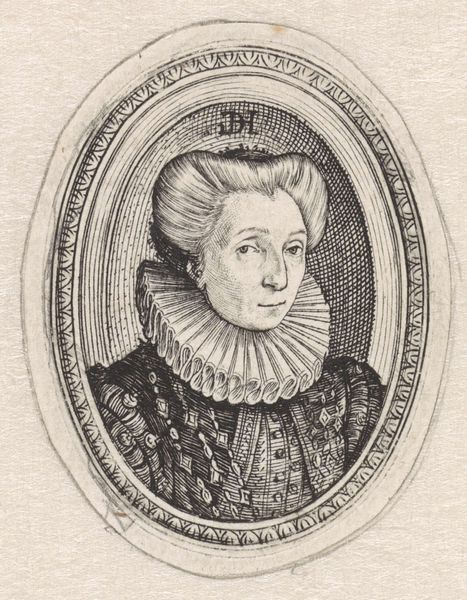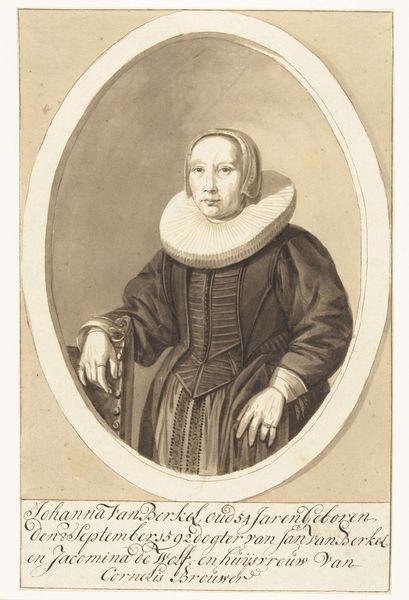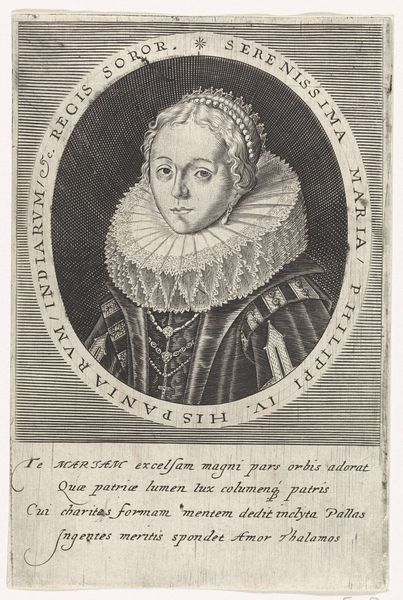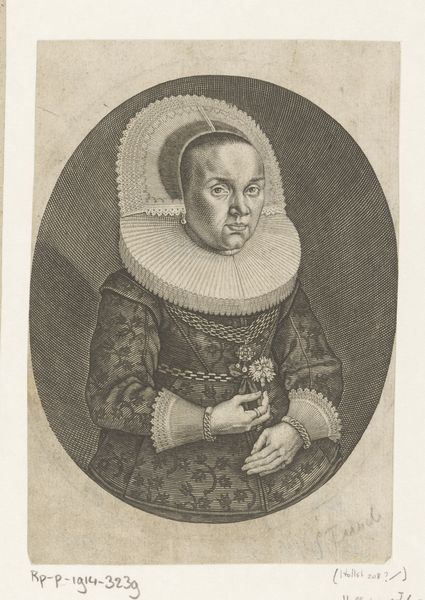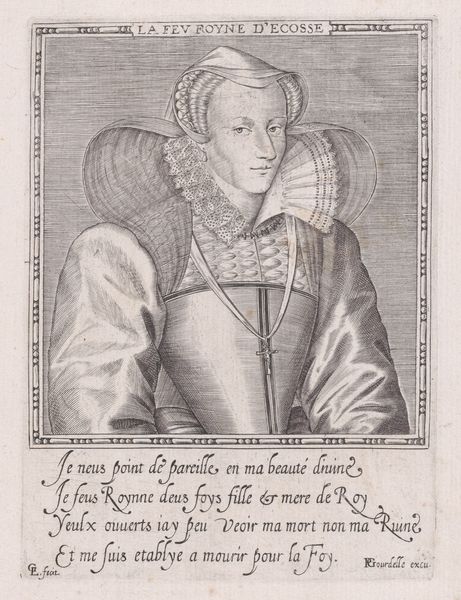
graphic-art, print, paper, engraving
#
portrait
#
graphic-art
#
neoclacissism
# print
#
old engraving style
#
paper
#
engraving
Dimensions: height 155 mm, width 105 mm
Copyright: Rijks Museum: Open Domain
Philippus Velijn created this portrait of Hillegonda Wentzen in the 1800s using etching and engraving. During this period, portraits memorialized individuals and cemented their status, often reflecting the sitter’s social standing through dress and pose. Wentzen is depicted with a demure expression, adorned in a fine dress with a large ruff, and a head covering, all of which signal her affiliation with the Dutch elite. Note the inclusion of her and her husband's coat of arms underneath her portrait. This etching would have served as a means to circulate and commemorate her image within a specific social circle. Consider how the artist's choices around composition and adornment shape our perception of Wentzen. Does this portrait offer a unique narrative, or does it reinforce conventional representations of women during the time? Think about the emotional impact this image might have had on Wentzen's contemporaries and its implications for how we view identity and representation today.
Comments
No comments
Be the first to comment and join the conversation on the ultimate creative platform.
